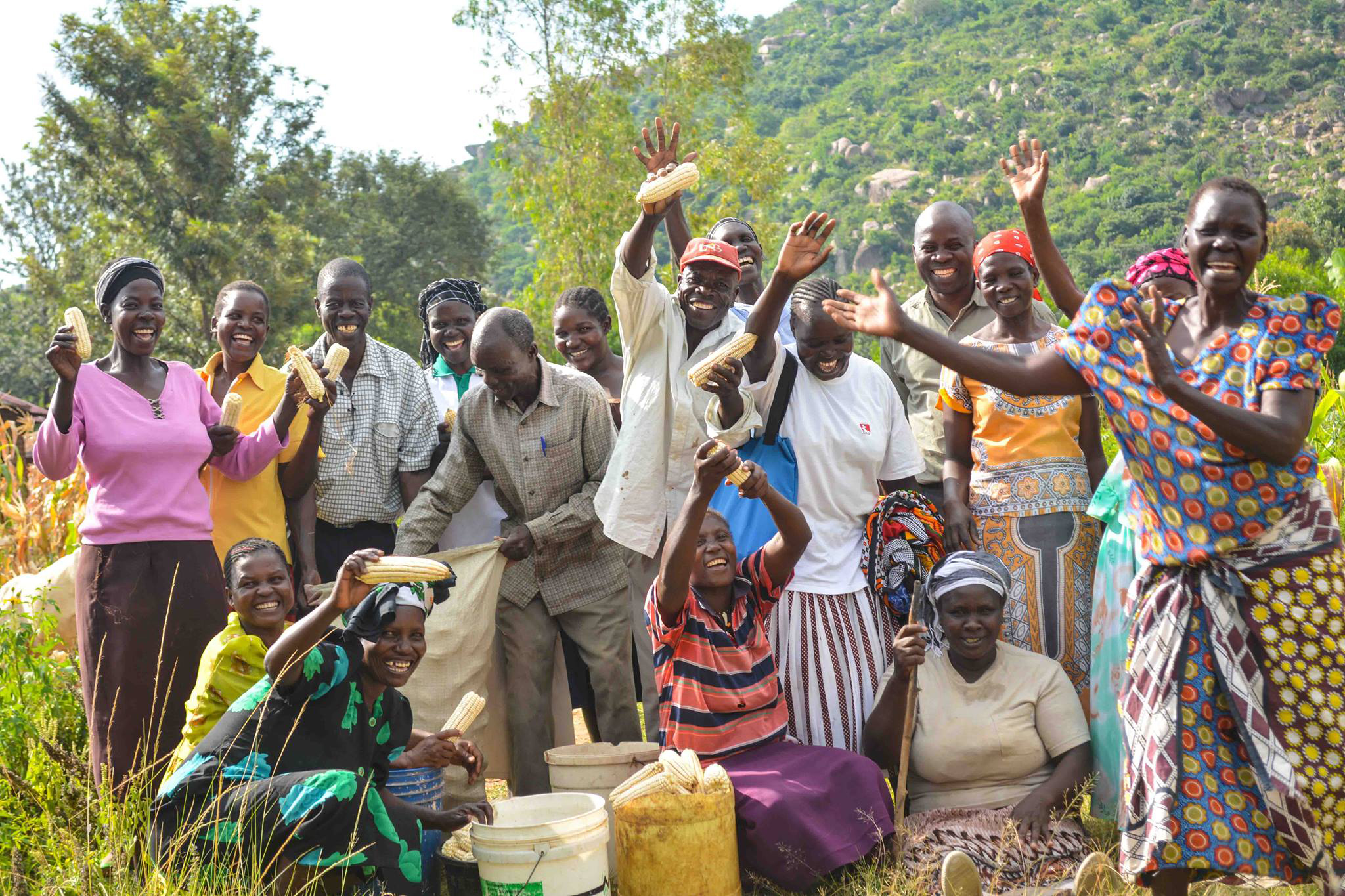GEODATICS
Innovative advisory services to smallholder farmers
> Download the GEODATICS project closure flyer
GEODATICS offered smallholder maize farmers in Kenya and Tanzania advice on the use of fertiliser and crop nutrient requirements. The aim was to increase yields and farmer’s income. The project was carried out by a consortium led by the social enterprise Agrics, with branches in both Kenya and Tanzania.
In addition to G4AW funding, GEODATICS also benefitted from winning a prize in the “Geodata for inclusive finance and food” innovator’s challenge G4IFF, organised by the Netherlands platform for inclusive finance (NpM).
Provided services
The target groups of GEODATICS are smallholder farmers and agri-businesses. GEODATICS provides agricultural input loans and advice on fertiliser, crop management and good agricultural practices. To do this effectively first a database with farmer profile information was created.
A variety of communication channels was used to reach the farmers, such as radio, phone text messages and phone voice messages, combined with outreach through extension workers, farmers’ and pastoralists’ organisations and ministries.
Demonstration plots for maize farming were used to show the benefits of the GEODATICS approach. Unfortunately, the spread of the fall armyworm and dry spells affected validation in the first years of the project, but the in last project year considerable gains in maize production were achieved, compared to conventional methods.
In addition experiments were carried out to use the GEODATICS model for soybeans and sorghum. Also weather forecasts and remote sensing-based crop monitoring were added to the service portfolio.

Business model
The business owner was the social enterprise Agrics. Agrics provided agricultural input loans and sold agricultural inputs. The farmers received advice through a subscription model.
Although the GEODATICS services were operational at the end of the project, the farmers experienced the provided advice as too complicated. This resulted in the service not being profitable in the short term. A cooperation within the G4IFF challenge with Agri-Wallet and Rabobank (both providers of inclusive finance) to add financial services and strengthen the business case did not create enough momentum towards a sustainable business case. If sufficient scale could have been reached, e.g. through cooperation with a large input producer, then perhaps the business model could have worked. Several factors affected the sustainable service provision negatively. One was government disrupting the business by subsiding fertiliser. Another was the outbreak of fall army worm and drought. In addition, the optimum blend of fertiliser that was advised was not available in the market. But maybe the most important factor was that, although the use of the GEODATICS service is demonstrably a profitable investment, potential clients considered the service to be too expensive.
Impact
In total approximately 15,000 farmers were profiled and registered. However, many of these farmers defaulted on their payments. There was also a difference between the two countries: the uptake in Kenya was much better than the uptake in Tanzania.
Agrics focussed purely on supplying smallholder farmers with inputs such as seeds and fertilizers via micro-credits. It turned out that this business proposition was not feasible enough, as the income generated via the small margin on top of the sold blends of fertiliser did not cover costs. As there was no viable business case, the GEODATICS team was dismantled and Agrics had to terminate its operations due to financial difficulties.
Still, GEODATICS developed a viable and proven technical model to provide farmers with solid nutritional advice that leads to higher yields. This proof-of-concept could be shared with others to provide added value to their business.
Partnership
Lead partner:
- ICS (Investing in Children and their Societies) (Netherlands)
Partners:
- Agrics Kenya
- Agrics Tanzania
- Biomass Research (Netherlands)
- Manobi (Senegal)
- Wageningen University Plant Production Systems Group (Netherlands)
| Country | Kenya, United Republic of Tanzania |
| Services | Crop management adviceFertilizer adviceGood agricultural practicesWeather information |
| Crops | MaizeSoybeansPotato |
| Target groups | Farmer (smallholders)Agri-business |
| Project period | 2015-2018 |